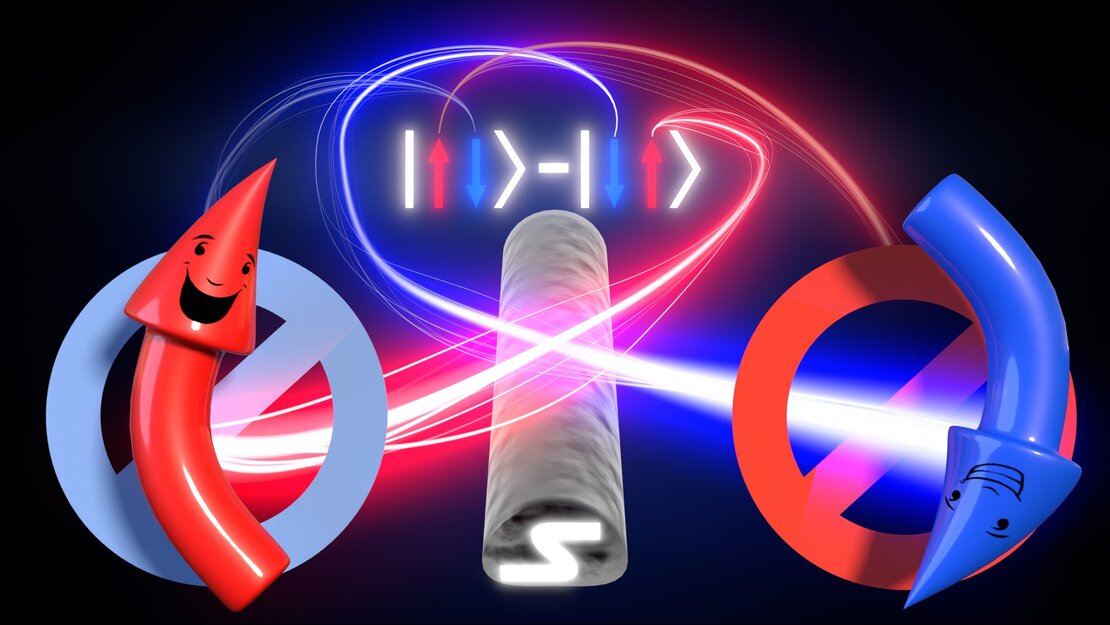Electron entanglement for free
28.11.2022Entanglement has been at the centre of the 2022 Noble Prize in physics: NoblePrize22. Today, optical sources that generate pairs of entangled photons can routinely be realized and used in, for example, secure data communication. In contrast, it has turned out to be a hard problem to generate a source which generates on demand pairs of entangled electrons that could then be utilized on chip for quantum information applications.
In the paper entitled “Spin Cross-Correlation Experiments in an Electron Entangler” and published on 23rd of Nov. 2022, a collaboration between the quantum- and nanoelectronics group and partners from CNR-Nano / SNS at Pisa, bring this target closer to life [1]. The team shows that the two electrons which are emitted from a so-called Cooper-pair splitter device [2] have their spin correlated. For a BCS superconductor, as used in this experiment, one expects that the two electrons are in a singlet spin-zero configuration. For an ideal experiment that used perfect spin filters one should observe a perfect anticorrelation of the spins. The measured correlation in the new work is consistent with anticorrelated spins. It is a major step towards entanglement generation and detection in so-called flying qubits based on electrons.

[1] A. Bordoloi, V. Zannier, L. Sorba, C. Schönenberger and A. Baumgartner
Spin Cross-Correlation Experiments in an Electron Entangler, Nature (2022)
[2] L. Hofstetter, S. Csonka, J. Nygård, and C. Schönenberger, Cooper pair splitter realized in a two-quantum-dot Y-junction , Nature 461, 960 (2009).
Source: https://nanoelectronics.unibas.ch/electron-entanglement-for-free/